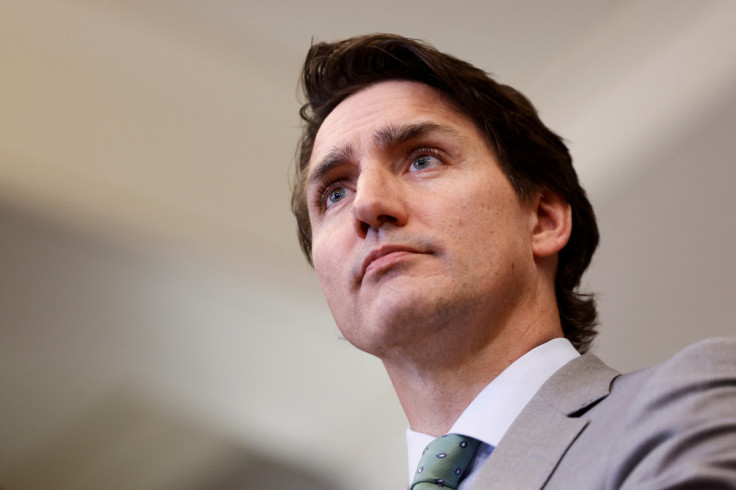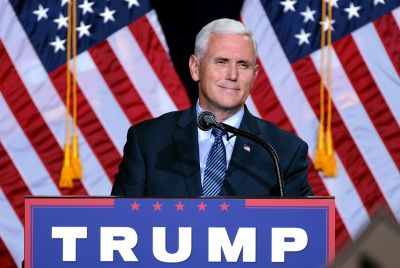Sri Lankan Minister Calls Canada 'Safe Haven' For Terrorists, Slams Trudeau For Outrageous Claims

Sri Lanka's Foreign Minister Ali Sabry has spoken out in support of India amid the latter's ongoing diplomatic row with Canada, and called the North American country a "safe haven" for terrorists.
Canadian Prime Minister Justin Trudeau has a way of coming out with outrageous allegations, Sabry said in light of Trudeau's recent statements about India having a hand in Sikh separatist Hardeep Singh Nijjar's killing on Canadian soil.
"Some of the terrorists have found safe haven in Canada. The Canadian PM has this way of just coming out with some outrageous allegations without any supporting proof," Sabry told Indian news agency ANI.
"I am not surprised that sometimes PM Trudeau comes out with outrageous and substantiated allegations," he said in the same interview.
Publicly picking a side in the India-Canada wrangle could put nations across the globe in a tough spot. However, the Sri Lankan minister backed India and mentioned how his country was also frustrated in the past over comments made by Trudeau about a "genocide" in Sri Lanka.
"The same thing they did for Sri Lanka, a terrible, total lie about saying that Sri Lanka had a genocide. Everybody knows there was no genocide in our country," Sabry said.
India-Canada ties have nosedived to a new low after Trudeau commented about Nijjar's killing being an India-directed plot without providing any concrete evidence to support the explosive claim.
Sabry said India-Sri Lanka ties had similarly nosedived after Trudeau's "genocide" comment.
"That has actually affected our relationship. The Foreign Ministry has a different take on that. Ministry of Global Affairs has very clearly said that Sri Lanka did not go through a genocide, whereas PM Trudeau as a politician stands up and says that genocide had taken place. That itself is contradictory to each other. That doesn't help," said Sabry.
In his interview with ANI, Sabry said the Canadian prime minister shouldn't interfere in the internal matters of other countries.
"I don't think anyone should poke their nose into other countries and tell as to how we should govern our country. We love our country more than anyone else. That's why we are in our country. We are not very happy about that statement at all," Sabry said. "Indian Ocean identity is very important and we need to strengthen the regional architecture. We have to look after our region. We need to work together. That's how we can create a peaceful environment. We should not be dictated by anyone else as to how we should conduct our affairs."
Nijjar, who was wanted under India's Terrorist Act for several cases, was killed in Canada on June 18 outside a gurdwara, a place of worship for Sikhs.
Following Trudeau's unsubstantiated allegations about India's involvement in Nijjar's killing, New Delhi dismissed the allegations as absurd and motivated. India also warned its citizens that there were "anti-India" activities in Canada, asking travelers to be cautious.
Protests erupted in parts of Canada on Monday in light of the diplomatic row. Parts of Ottawa, Toronto, and Vancouver saw protesters gather outside Indian diplomatic missions. Around 100 protesters were seen in Toronto, where demonstrators burned the Indian flag and used shoes to strike a cardboard cut-out of Indian Prime Minister Narendra Modi.
Protesters were also seen in front of the Indian high commissioner's office in Ottawa.
"The streak of Khalistan protests outside Indian embassies and the High Commissioner's office must cease, as it poses a threat to Indian diplomats and borders on violating the Vienna Convention. On numerous occasions, these protests have exceeded the permitted boundaries, as seen in London, where Khalistan protesters breached the Indian embassy's premises," Vivek Mishra, a fellow with Observer Research Foundation's Strategic Studies Program, told International Business Times.
"If anything jeopardizes the safety and security of Indian diplomats and the Indian High Commission premises, the Canadian government bears responsibility for such activities," Mishra added.
© Copyright IBTimes 2024. All rights reserved.






















